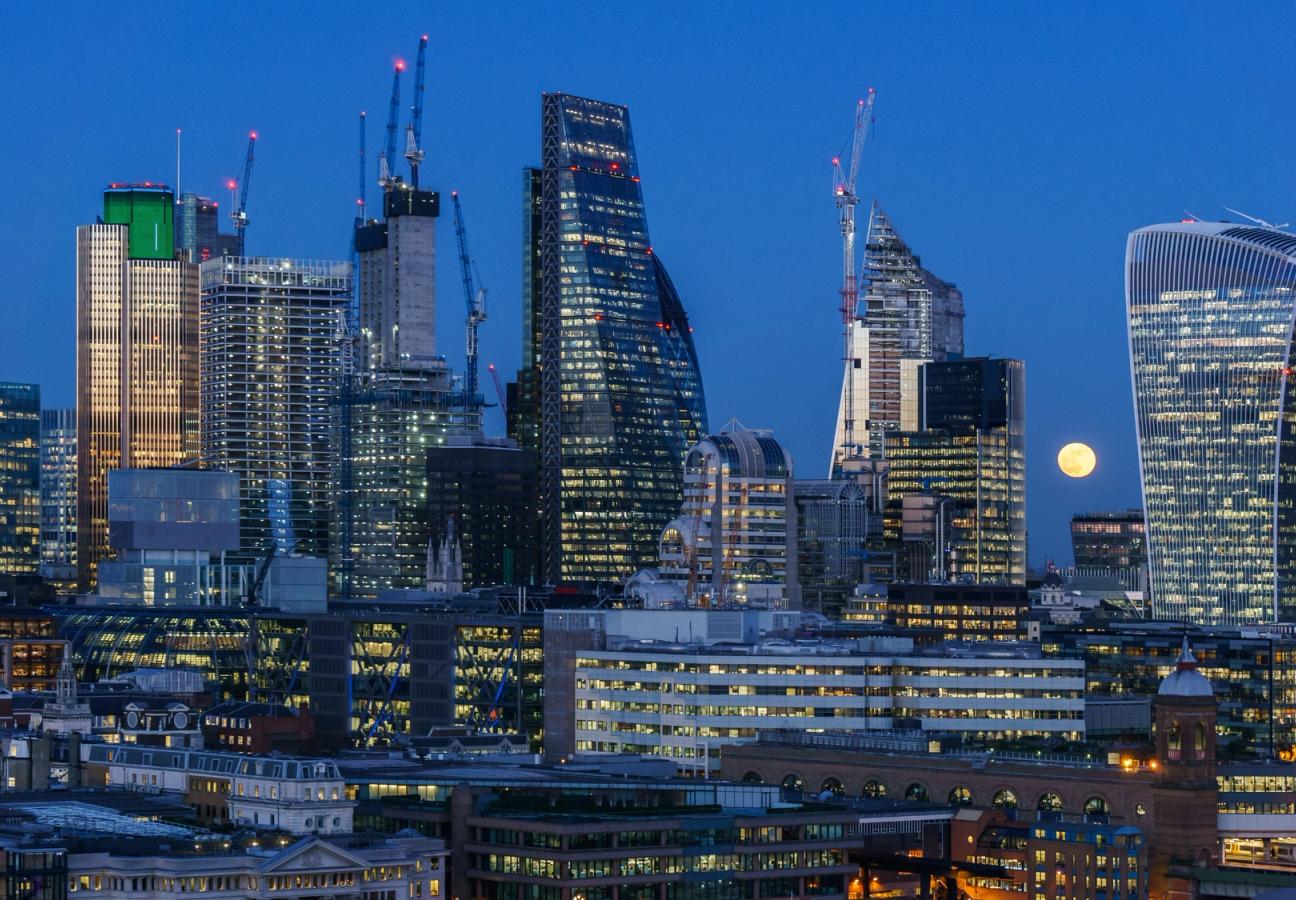

C-Suite Confidential — “Cryptocurrency blew up my printer”
Professor Stefan Allesch Taylor journeys deep into the history of cryptocurrency — and explains why holders should welcome regulation, not fear it
My printer blew up. Not literally, of course — it just shuddered to a halt and decided it had had enough. It’s an HP Photosmart 7520. Good enough to cope and small enough to be reliable. Or so I thought. But then Larry Trachtenberg blew up my printer.
I have avoided writing about cryptocurrencies for years. As soon as you think you’re getting a handle on them, something seismic changes everything. You know the kind of thing. El Salvador officially recognising cryptocurrency as legal tender (6th June 2021.) MassMutual life assurance giant invests $100m in Bitcoin for its general investment fund (10th December 2020). The total ban on crypto by the Government of India that never was (11th February 2021.) Gabriel Makhlouf of the ECB Council warns Bitcoin investors they’re going to lose all their money (1st February 2021). Mastercard adopts Bitcoin (10th February 2021). And on 10th February, Cambridge University announces Bitcoin mining consumes 121.36 terrawatt-hours a year — so what? It’s more than the entire annual electricity consumption of Argentina, that’s what. As an investor, the only response is to shout, ‘OH C’MON!’ at your screen most days. How do you get a handle on crypto as an asset? Clearly Warren Buffet’s ‘don’t invest in what you don’t understand’ approach means nothing in this game.

Elon Musk wields an inordinate amount of power over crypto markets
Larry Trachenberg is the co-founder of London crypto discussion network, CryptoMondays. I asked Larry for a simple chronology of cryptocurrency. ‘How lengthy could be it be?’ I thought. It’s all so new. Now I have hundreds and hundreds of facts dating from 1976 to 2021, and even predictions through to 2140 about crypto and Bitcoin in my printer queue — so many that I couldn’t read them on the screen without getting dizzy, hence the print run. Every fact had and will have market sensitivity.
Larry, you blew up my printer. For those who need some context to crypto, and I include the multitude that own it, there are around 30 billionaires currently who made their fortunes from Bitcoin alone. The number one on the list has just under $11bn (that’s less than 1.6% of Bitcoins mined to date). The next three below own between $4bn and $5bn each.
"Might Elon Musk soon promote Ravencoin, because his favourite bird is the raven?"
Ethereum is the ‘little brother’ of Bitcoin. That ‘little brother’ settled over $1.5 trillion of transactions in Q1 2021 alone. The European Investment Bank has just issued an Ethereum Bond. These digital assets are not alone of course, I’m told to watch Ravencoin, Cardano, Stellar, Polkadot and VeChain coins. You never know — Elon Musk may say he likes Ravencoin next because his favourite bird is a raven? Or perhaps Anthony ‘The Mooch’ Scarramucci (remember him?) will say the Polkadot price is going to the moon because he likes polkadots? Afterall ‘The Mooch’ predicted Bitcoin will reach $100,000 before the end of 2021. He did launch the Skybridge Bitcoin Fund in December 2020, so make of that what you will.
Drowning in information, it’s difficult not to be swayed by every piece of data and every opinion — and there are many. There can be no question crypto currencies are here to stay, as is blockchain. The internet changed information flow (and content) and blockchain will likely be the same for value transfer. Clearly owning Bitcoin is a roller coaster and like any gamble, comparative moderation seems sensible.
The language of ‘crackdown’ is being flung around by journalists with impunity in relation to crypto currencies in light of recent dramatic regulatory moves in the USA, Canada and elsewhere. This has caused some consternation amongst the crypto community: I know this because the price drops. However, there’s a crucial element being missed by many in the crypto industry from operators to investors. Factoring in the process of change — and change on this scale — is a long road indeed. It began with Governments, Central Banks and then Banks dismissing crypto as terrible. On 12th September 2017 JP Morgan boss Jamie Dimon called it ‘a fraud worse than tulip bulbs’ (I had to look that up too), then in April 2021 JPM announced a Bitcoin fund. Cue ‘OH C’MON!’
"Crypto and blockchain will not be bringing down the ‘world order’..."
Here’s my take on where crypto is now and why as an investor you should stop torturing yourself with the, admittedly huge, twists and turns of the evolution of the crypto world. For these strings of numbers to be worth anything without debate (think gold) they must be universally ‘adopted’ as they were designed to be. How many are really ‘currencies’ today? (Except for El Salvador as of today…)
If you’re a nihilist or an iconoclast I suggest you think about embracing a barter system because despite what your chat room folks are saying, crypto and blockchain will not be bringing down the ‘world order’. They are going to empower it to be better, faster and more efficient, in time. Just as the internet did to communications (think telephone, fax, video and letters.)

Crypto investors should welcome regulation from the likes of the City — not fear it
Caitlin Long, the CEO of Avanti Bank, a new digital asset bank, has made it clear that there is no Bitcoin ‘crackdown’ going on. There is, however, a process underway to bring crypto into a space where policy can be written to protect investors. She says, ‘pay tax, comply with the law, don’t take shortcuts and we’ll enable innovation’.
When you crypto holders hear about more regulation, be happy — because it’ll take these currencies one step closer to attaining real value. For as long as a trillion dollars can be wiped off the value of Bitcoin or any other digital asset by one tweet from Elon before he’s either had his coffee in the morning, or after a few glasses of Malbec in the evening, be very afraid.
Stefan Allesch-Taylor CBE FKC is Professor of Practice of Entrepreneurship, King’s College London and a serial entrepreneur
Read next: David Cameron and Greensill: What happened?


